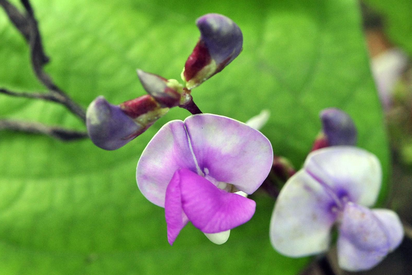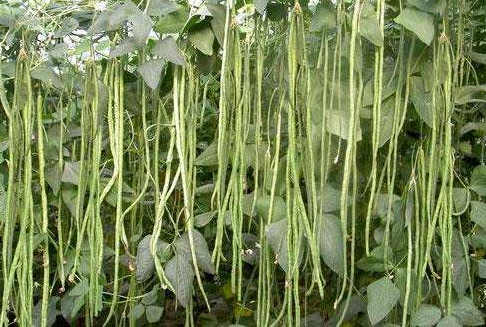In the summer, extreme natural disasters such as high temperature and high humidity, drought or heavy rain, frequent occurrence of pests and diseases, uncoordinated management of water and fertilizer, and many other unfavorable factors often lead to the phenomenon of falling and falling pods of cowpeas, resulting in reduced production and reduced income. The following is a description of the causes and preventive measures that cause the cowpeas to fall into the pods. Temperature discomfort The optimal temperature for the growth of cowpea is between 20-28 °C, and it can also adapt to the high temperature of 30-40 °C in a short period of time. The optimum temperature for flowering and pod-forming is 25-28 °C, and the ability to form pods above 35 °C is reduced. It is easy to cause falling flowers and pods in a high temperature environment. Conditionally, cover the shade net above the cultivated field to achieve the purpose of cooling, or use small water in the morning or evening to reduce the temperature of the field microclimate, and provide a relatively suitable temperature for the growth of cowpea. Uneven drought and flood Cowpea is particularly sensitive to moisture at the initial flowering stage, and the water is too large, which can easily cause long hair and cause falling flowers. In the pod-forming period, a large amount of water is needed. If the temperature is high and dry at this time, it is easy to cause falling flowers and pods. Water accumulated in the field, soil moisture is too large, is not conducive to the growth of roots and nodules, causing roots and rotten roots, causing the leaves to yellow off, leading to falling flowers and pods. In management, in case of high temperature and drought, it is necessary to timely water and drought, and in the pod-forming period, it should be combined with watering and topdressing, and deep application of compound fertilizer. In the event of heavy rain, it is necessary to dig the drainage ditch in the field in time to prevent disasters. Plant growth Cowpea is affected by high temperature in the early stage of growth, which is easy to cause the plant to grow. If the plant does not pay attention to control in the early stage, the plant grows rapidly, and the carbon-nitrogen ratio of the plant is easily imbalanced. The nutrients cannot be balanced, so that between the leaves and the flowers, between the flowers and the flowers, The fruit pods compete with the fruit pods for nutrients, causing the flowers to fall. In terms of management, the water control and fertilizer control should be properly controlled in the early stage, and the management mode of “pre-control and post-promotion†should be adopted. In the pod-bearing period, the compound fertilizer with high phosphorus and potassium content should be applied. The fertilizer and water supply should be increased, the growth should be promoted, the flowering should be more, and the pods should be multi-pod. In the middle and late period, when the root system is aging, the leaf surface sprays potassium dihydrogen phosphate. There is obvious anti-falling and production increase effect. Pest hazard Although the pod-forming rate is not high during the whole growth period, the inflorescence and flower buds are more, and the most vulnerable insects in the flowering period are cowpea. Cowpea is mainly harmful to flowers and pods. Once it is damaged, it causes a lot of fallen flowers and pods. In addition, cowpea rust has a great damage to the leaves, and if it is not treated in time, it is easy to cause falling flowers and pods. In management, when encountering pests such as aphids, cowpea, cotton bollworm, and tobacco budworm, 10% imidacloprid and 4.5% beta-cypermethrin 1000 times solution are used to control pests. Cowpea rust is selected from 20% powder rusting emulsifiable concentrate 2000 times liquid, or 10% high water dispersible granule 1500-2000 times liquid, spraying once every 7-10 days, continuously spraying 2-3 times. Enoki Mushroom Extract;Snow Puf Mushroom Extract;Enokitake Concentrated Powder Shaanxi Zhongyi Kangjian Biotechnology Co.,Ltd , https://www.zyplantextract.com
